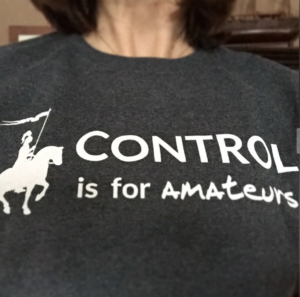By Ted McEnroe, The Community Roundtable
This month, our new and brilliant Community Management Fellow, Georgina Cannie, kicked off a wonderful and equally new feature of TheCR Network. Starting this month, we are recognizing members of the network as TheCR Network Superheroes, complete with badges on their network profiles. As you may have noticed, the superhero theme appears to the be the theme of 2015 for us here – we highlighted 2o Community Manager Superheroes in the recently-published Community Manager Handbook – but whatever you call the best members of your online community, recognizing their work should be a critical piece of your community management efforts.
 Here are five reasons why.
Here are five reasons why.
Your superheroes model the best behaviors.
In communities as elsewhere, the old saying “The squeaky wheel gets the grease” often rings too true. You’re putting out fires, settling disputes, moderating touchy situations and fighting tooth and nail for resources – and your superheroes are providing value with their actions and words. Your superheroes help you tackle the headaches you have to deal with at the very least by not adding to them, and they are doing what you wish everyone would do. One of our May superheroes, Jerry Canaday of MasterCard, is a frequent answerer of questions and a provider of resources, and has led member workshops and a recent #ESNChat on ‘The Future of the Intranet.’ Who doesn’t want a member like that?
Your superheroes aren’t just your most experienced members – and that’s awesome.
Another superhero from this month, Ivonne Grantham Smith of Skillsoft, is a super example of how newer members of the community provide value. As a new community manager when she joined, Ivonne was well-suited to take advantage of the roundtables, calls and resources TheCR Network provides. She jumped in with both feet, working out loud, asking questions and providing the interaction that is the lifeblood of any community. Now, she’s giving back, sharing the resources she is developing for her own community. The student becomes the master – in a friendly, community sort of way.
Recognition highlights unseen actions.
Just as we talk about the iceberg effect of community management – where 90 percent of the real work of running a community goes unseen beneath the surface – there are members who play critical roles behind the scenes who deserve recognition for their work. Emily Wade of Market Street Solutions has been an active member and has helped organized member Roundtable calls – just the kind of work that no one would notice normally, even though they should.
Your superheroes are worthy of public praise.
We’re fortunate to have a community with a lot of Jerrys, Ivonnes and Emilys, but that doesn’t mean we shouldn’t take every chance we can to recognize them. The public praise isn’t just a stroke of the ego – it’s an important element of raising up the expertise of the members, to get them using each other as resources and to have the opportunity to matter. That scales the community, it scales you as a community manager, and, no the good feeling it gives those who get recognized doesn’t hurt.
Recognition builds advocates.
Lastly on this list – recognition programs set the stage for building even bigger and better advocacy programs. As we have already hinted at in past posts about the State of Community Management 2015 report, strong multi-tiered advocacy programs have a remarkable effect on the vibrancy and effectiveness of communities to achieve business outcomes. Recognition is a great reward, but even more powerful when it is one level of an advocacy program that gives members a chance to generate more value from the community than they put in. This generative model is the base on which the most remarkable communities build their advocacy programs – and it is the model on which they can build their organizations.
So what are you waiting for? There are heroes out there…
 February is (almost) over, but we managed to pack a lot into the shortest month of the year. Our main theme of the month has been the
February is (almost) over, but we managed to pack a lot into the shortest month of the year. Our main theme of the month has been the 
